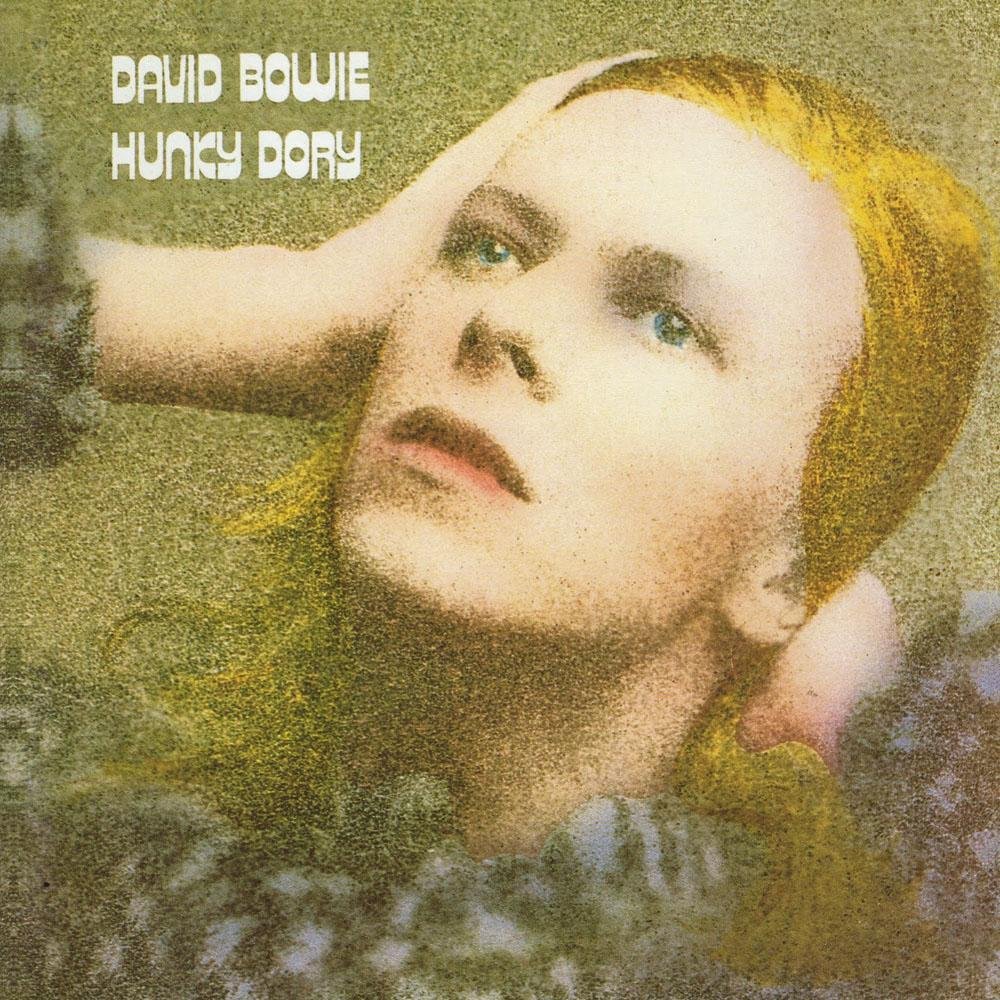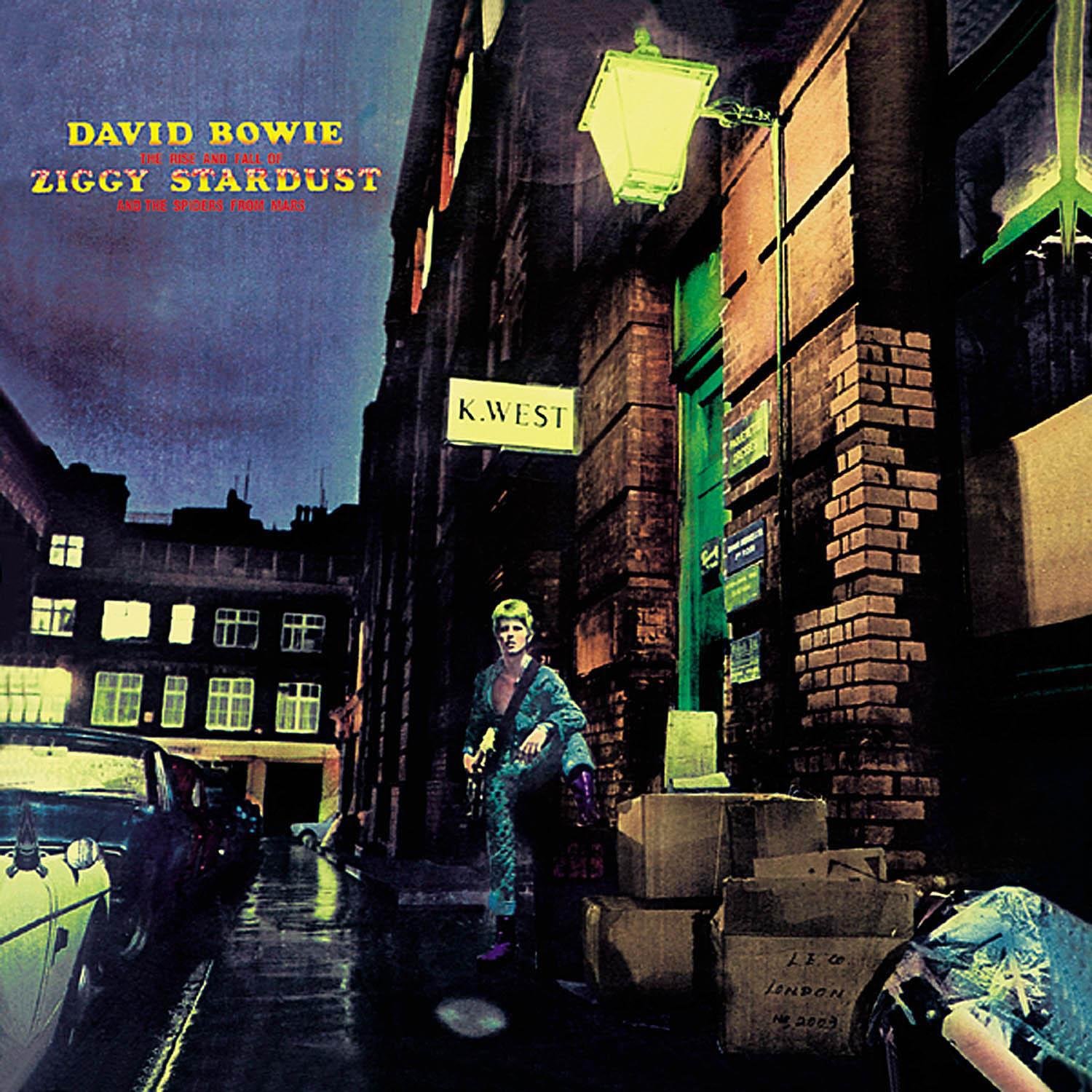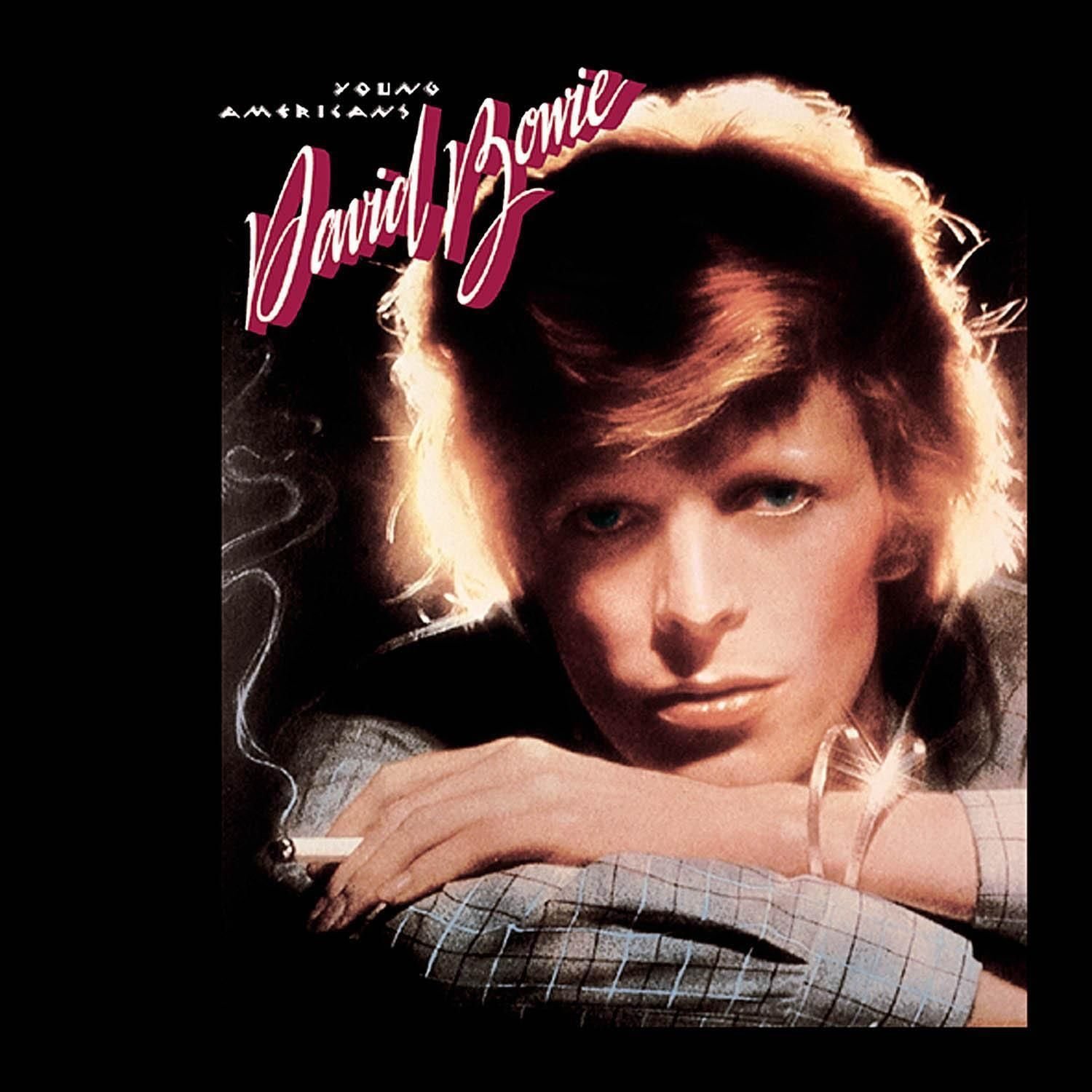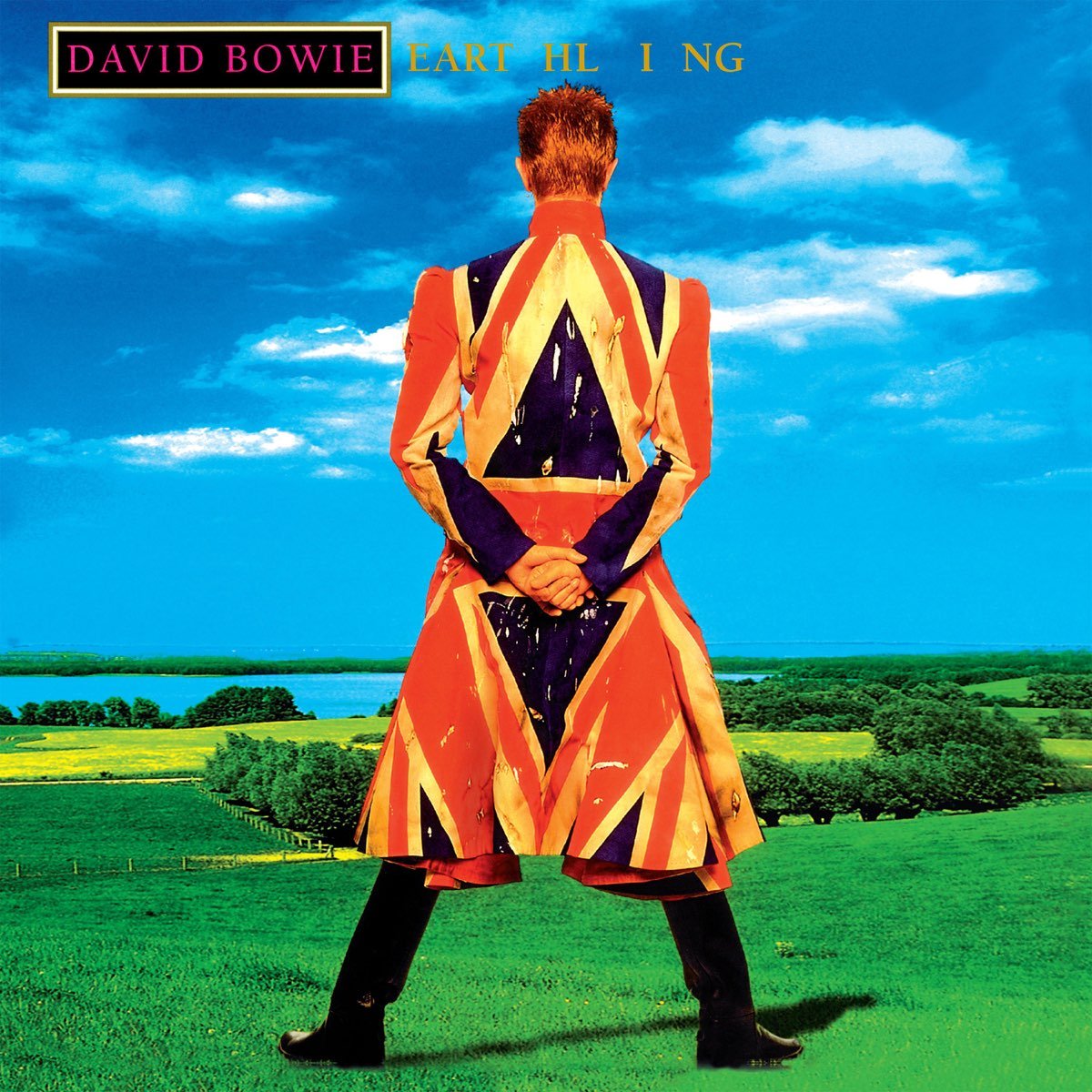Happy 20th Anniversary to David Bowie’s twenty-third studio album Heathen, originally released June 10, 2002.
As an Amazon affiliate partner, Albumism earns commissions from qualifying purchases.
“Heathen kind of felt right, in as much, as it was about the unilluminated mind,” David Bowie reflected during a 2002 interview. “It was an idea, a feeling, a sense of what 21st Century man might become if he’s not already: someone who’s lowered his standards spiritually, intellectually, morally whatever…someone who’s not even bothered searching for a spiritual life anymore but who’s completely existing on a materialistic plane. But just using the word “heathen” is kind of less preachy than explaining all that. ‘Cos if you wrote all that on the front of an album cover, nobody would bother buying it, would they?”
At the turn of the century, Bowie was enjoying a period of rest from the public eye, resurfacing only for a few rare, significant live performances. Before the release of his twenty-third studio album Heathen, Bowie’s priorities had shifted, finding him taking time to enjoy fatherhood and, at the same time—after bringing back his old hits on the stage of the Glastonbury Festival—rediscovering his glorious vault of unreleased songs from the ‘60s.
In 2000 Bowie commenced recording Toy, which was going to include unreleased and new songs. However, due to financial troubles encumbering Virgin EMI Records, the project got postponed until a later date, leading to the artist receding from the contract with the label.
Before Toy’s fate was sealed, Bowie was already planning a new project. In June, the artist reunited with his old friend and producer Tony Visconti—with whom he collaborated on Scary Monsters (and Super Creeps) (1980)—at his three-story apartment in suburban West Nyack, New York. The pair commenced working together on a demo session of new and old songs, though the Looking Glass studio wasn’t bringing Bowie the inspiration he needed.
On the second day, Visconti took Bowie to Allaire Studios—located in the Catskill Mountains—a gorgeous wood-lined new complex adorned with breathtaking, scenic panoramic views overlooking New York’s Ashokan Reservoir. The minute Bowie put his foot in the room, he got the boost of creativity and inspiration he was looking for “I knew exactly what lyrics I was to write – although I didn’t yet know what the words themselves were,” he recounted.
Despite being a city dweller, the magnificence and stillness of the location made a great impression on the artist as he told The Daily Beast in 2002: “I’m in there working at 6 in the morning, just playing the synthesizer, the piano, and working on what we’re going to do that day—and I’m looking out at the deer and I don’t believe this is happening to me, the serenity and the majesty of it. How beautiful the world is. And it all started coming in and I was honing in on what it is I really had to say about my life. It was magical. Now I’ve done that, I don’t know if I could ever repeat that experience.”
Listen to the Album:
During the recording process, Visconti and drummer Matt Chamberlain would routinely team up with Bowie in the studio and recorded about 19 backing tracks in two weeks before additional artists—including David Torn, Theater keyboardist Jordan Rudess, and The Scorchio Quartet—joined in to provide their contribution to the album.
Towards the end of the Allaire sessions, the 9/11 events shocked the world, and the recording session for Heathen was placed on hold. According to Visconti, returning to the studio provided healing and solace for everyone involved in the project. “After a few days we called for The Scorchio Quartet to see if they felt like recording,” Visconti explained in 2002. “We had very little left to do. Of course, it was the best thing to do, to try doing something to make life seem normal again. They braved all the checkpoints out of the city, crammed into violist Martha Mooke’s car, and arrived a little shaken but anxious to make music.”
For one of the last recording sessions—the first one after 9/11—Visconti had already laid down the scores for the string section of “ I Would Be Your Slave”; the Scorchio Quartet joined the team at the Allaire Studios and was asked to play through guitar amps. “It was terrific that they could even think about coming up to work after such a traumatic experience. But as they pointed out, it was the necessary break that was so needed by all of them.” Bowie recalled.
By September 15th, everyone was ready to pack up and go back home to take a much-needed break before reconvening at Looking Glass Studios for the mixing and overdubbing process, where Earl Slick—who appeared on the albums Young Americans (1975) and Station To Station (1976)—recorded parts for “Everyone Says Hi.” More guests turned up to offer up their contributions to the album, including Dave Grohl and Pete Townshend respectively for “I’ve Been Waiting For You” and “Slow Burn.”
The result of these endeavors is Heathen, one of David Bowie’s numerous highly artistic and personal moments. With Heathen, Bowie came to a point of consolidation, crystallizing many ideas, life experiences, and a broad array of sounds and techniques.
Surrounded by an aura of melancholia and mystery—where the gorgeous landscape surrounding the Allaire Studios, and the album’s soundscape aligned perfectly—Heathen finds Bowie returning to form, taking a different path as opposed to the previous experimental projects and turning to big orchestra arrangements coupled with monumental vocals.
Heathen excavates into Bowie’s life events—such as the birth of his daughter, the passing of his mother and father, and of his friend and stylist Freddie Buretti—leading up to the big life questions (Where do we come from? What’s the meaning of life? Where are we going?), which touch upon themes he had always grappled with throughout his entire career.
For the two decades preceding Heathen, Bowie had been confronting many worries about whether, in his later years, he would still be as influential again. And amidst the relaxed, cathartic atmosphere of Allaire Studios, he found his answers, for a renewed enthusiasm permeates each song on Heathen, displaying hard-won confidence, and brand-new love for his craft.
The album kicks off with the hazy, post-apocalyptic, reflective “Sunday.” The glitchy guitar work, and the enigmatic, vivid lyrics reiterating the paradoxical declaration “And nothing has changed / Everything has changed” offer an enhanced sense of bewilderment, alienation, and confusion.
Although “Sunday” may be prompting an arduous introspective voyage, it was, au contraire, the lavish mountainous landscape surrounding the Allaire Studios that practically “dragged the lyrics out of” Bowie. “The words to ‘Sunday’ were tumbling out, the song came out almost written as I was playing it through, and there were two deer grazing down in the grounds below and there was a car passing very slowly on the other side of the reservoir,” Bowie relayed to Interview Magazine in June 2022. “This was very early in the morning, and there was something so still and primal about what I was looking at outside that there were tears just running down my face as I was writing this thing. It was just extraordinary.”
Enjoying this article? Click/tap on the album covers to explore more about David Bowie:
By 2002, Bowie had already publicly profusely praised the Pixies, describing them as a great band that didn’t ignite the American audience like they did in Europe, and then performing a live rendition of “Debaser” with his rock act Tin Machine in 1991. “I thought it was a hell of a shame that America didn’t recognize its own with the Pixies,” he remarked.
It was 1988 when the Pixies recorded the song “Cactus” for their debut album Surfer Rosa, which was inspired by one of frontman Charles “Black Francis” Thompson’s journeys to Puerto Rico.
Bowie’s inspired choice to arrange a rendition of “Cactus” for Heathen may have been elicited by the piece’s resemblance to the Stooges' “I Wanna Be Your Dog” and “1970” chord progressions and fellow artist Iggy Pop’s energetic delivery.
Bowie reworked “Cactus” into a flamboyant, ‘70s-rock-nuanced anthem, while retaining the original version’s atmosphere. Arguably among the best tracks on the album, “Cactus” kicks off with a strummed acoustic guitar riff that builds up the energy, then blossoms into a whimsical impetus of drums, electric guitars, and synthesizer (EMS Synthi AKS) for the reverberating choir, to add a louder tinge to the whole song.
Reminiscent of the eerie feeling of the Ziggy Stardust saga—precisely The Rise and Fall of Ziggy Stardust and the Spiders from Mars (1972) and Aladdin Sane (1973) —the monumental ballad “Slip Away” was originally recorded during the Toy sessions and was intended to be titled “Uncle Floyd.”
“Slip Away” took inspiration from The Uncle Floyd Show—to which Bowie was introduced by John Lennon in the late ‘70s—starring comedian Floyd Vivino, featuring puppetry sidekicks—Oogie the clone and Bones Boy the skeleton—music, and comedy aiming at an adult audience.
“It’s about a television hero in America from the ’70s that myself and Lennon and Iggy Pop used to watch in the afternoons,” Bowie explained. “Crazy guy and we were very adult and used to love fooling around watching this guy, Uncle Floyd. And his song is called ‘Slip Away.’”
Sounding like it was extracted from an old vinyl LP, “Slip Away” is a nostalgic, sumptuous, mid-tempo ballad filled with vintage-hued piano sections and a Ziggy-flavored arrangement—achieved with the use of the Stylophone (the same instrument used on “Space Oddity” and “After All”)—building up strength and breadth for the center of the piece “Sailing over Coney Island / Twinkle, twinkle, Uncle Floyd.”
Particularly astounding is Bowie’s expressively momentous delivery enhancing the monumental soundscape, impeccably conveying a sense of wistful yearning for a past—and perhaps a better—time.
“I wanted something on the album that pointed to a nicer time, a better time, a more fun time, even if it wasn’t necessarily true,” Bowie said. “The Ramones played the show quite a few times cause they also loved it. Saying ‘Uncle Floyd where are you now?’ is really like Ray Davies saying ‘Where Have All The Good Times Gone?’ So yes, that’s my yearning song, as far as looking backwards. But most of it is about looking rather anxiously into the future.”
It’s not a mystery that since the release of his eponymous debut album, David Bowie had shown particular interest in portraying the ugly side of our society, as evidenced in songs like “We Are Hungry Men,” “1984,” “Five Years,” “Panic in Detroit,” “The Next Day,” and “Blackstar,” to name a few. Although arrangement and soundscape-wise, “Slow Burn” may be on the same spaceship as “Slip Away” thematically, the song shoots the listener into a parallel, dystopian “terrible town” besieged by terror and dismay.
“Slow Burn” reckons with the human experience on the planet—the degradation of humankind and the world—a state of deep frustration stirred by the realization of the frequent doomsday predictions, suggesting that nothing new shall happen but a series of never-ending catastrophes recurring repeatedly. “Like a Slow Burn / Leading us on and on and on / Like a Slow Burn / Turning us round and round and round.”
Like “Slip Away,” the song “Afraid” was meant for the Toy album. According to producer and musician Mark Plati, the song’s creative process was inspired by Andrew Loog Oldham’s memoir Stoned, in which he recounted how the Rolling Stones’ manager locked Mick Jagger and Keith Richards in a flat, refusing to let them out until they had come up with new material. Seeing that the album’s creative process was progressing dimly, Bowie and Plati decided to follow the Oldham approach.
“’Afraid’” was a track written on my mini-guitar,” Plati explained. “David was in the process of writing it, but he was a little behind (studio time ticking away), so we had to take a page out of the old-school book (courtesy of Andrew Loog Oldham, ex-Rolling Stones manager) and lock him in a room to finish it! (And aren’t we glad we did).”
Unlike “Slip Away,” which was entirely reworked during the Heathen sessions, “Afraid” includes the original Toy backing track, though the recording was mixed and overdubbed to suit the atmosphere and style of the new material.
Particularly descriptive and metaphorical, rather than autobiographical, “Afraid” depicts the perspective of a person desperately attempting to conform to trite, outdated societal norms and “walk an empty mile.” “I think that “an empty mile” is a journey with no purpose,” Bowie told The Daily Beast. “It’s a journey because that’s the road that everybody’s supposed to walk. It’s like being in the army, sometimes being in society—do this, do that. And then you find out that the authority didn’t really have a reason but felt they ought to tell you to do something. But if we do this, everything‘s going to be fine fun. There is no reward.”
Partially an homage to the John Lennon/Plastic Ono Band (1970) album, the Beatles reference conveys the fictitious sense of optimism of our modern society. “The Beatles could‘ve been anybody—they’re just the most obvious symbol,” Bowie said. “So, I’m using that ‘I believe in Beatles’ as being like, Why can’t we have something like that now? I’m just afraid that the only way I can do it now is by corrupting or perverting all I really feel and then I’ll be able to exist. I won’t be afraid.”
After the emotional upheaval of the previous tracks, the three renditions—“Cactus,” “I’ve Been Waiting For You,” and “I Took A Trip On A Gemini Spaceship”—work as humor lifters and memory tokens.
With “I’ve Been Waiting For You,” Bowie pays homage to rock legend Neil Young whom he had been massively influenced by, especially during the writing and composition of Hunky Dory in 1971. “The Neil Young song ‘I’ve Been Waiting For You’ was from his very first album,” Bowie told Livewire Magazine in 2002. “When I got that album in 1969, I was dazzled by the overall complexity of sound. It was so majestic but aloft or lonely sounding at the same time. A real yearning. And I’d always wanted to do that song on stage or someplace.”
Presenting a drastic change of mood, sound, and delivery, “I’ve Been Waiting For You” is a string-charged, shrieky mid-tempo, emotionally laden, rock anthem, including vocals reminiscent of Young’s original version with guitar work courtesy of Foo Fighters frontman and former Nirvana drummer Dave Grohl.
Recalling Goblin King Jareth’s last attempt to allure Sarah in “Labyrinth” (“I ask for so little. Just fear me, love me, do as I say, and I will be your slave”), “I Would Be Your Slave” stands as a typical Bowie song in the canon of the magnificent “Word On A Wing,” offering “an entreaty to the highest being to show himself in a way that could be understood.”
Enhanced by a majestic arrangement—including the sumptuous string section, courtesy of New York Based Scorchio Quartet—and exquisite vocal delivery, “I Would Be Your Slave” is a prayer to a deity or God to open their heart to the narrator and show their existence. Though, contrary to “Word On A Wing,” the god in question gets accused of vengeance (“I bet you laugh out loud at me / A chance to strike me down”).
The third and last rendition on Heathen comprises “I Took A Trip On a Gemini Spaceship” by the Legendary Stardust Cowboy Norman Carl Odam, a quirky, ingenious artist on whom Bowie based the name and—partially—the Ziggy Stardust character.
During his first trip to the US in 1971, Bowie was on the lookout for new “weird” music, and the PR of Mercury Records, Ron Oberman, promptly passed him three singles from the label. “I choked on ‘Paralyzed,’ gasped in awe at ‘Down in the Wrecking Yard’ and fell all about the floor at ‘I Took a Trip On a Gemini Spaceship,’” Bowie wrote in a 2002 issue of MOJO. “It was the laugh of love. I could not believe that such a talent was unrecognized…I became a lifelong fan, and Ziggy got a surname.”
However, Stardust Cowboy felt differently about Bowie taking inspiration from his name for his Ziggy Stardust character: “I’ve reached the point where I need help in going further…It sure would be nice if David Bowie would pay me something for using part of my name in “Ziggy Stardust,” he wrote in a letter in 1984.
Feeling guilty about taking Legendary Stardust Cowboy’s original name, Bowie decided to craft a rendition of one of his favorite songs by the artist: “When I read on his site that he thought that because I’d borrowed his name that, at least I should sing one of his songs, I got guilty and wanted to make amends immediately” … “So, I covered one of his best songs, ‘I Took a Trip on a Gemini Spaceship,’ although he sings ‘Spacecraft’ on the record.”
Making a triumphant yet brief return to the experimental sound of Earthling (1997), “I Took a Trip on a Gemini Spaceship” blends up-tempo electronic percussions, a breathtaking string and saxophone section, shooting the listener into a psychedelic, mysterious soundscape drenched in a tale of planets, stars, and melancholia.
Segueing on the melancholic feel of the previous track, the autobiographical “5:15 The Angels Have Gone” portrays a vivid sense of isolation and gloom, enriched with the description of a cold train station platform on a rainy day, and the narrator changing towns to escape a past life and failed love affair. Speaking to Billboard in 2002, Bowie described the song as “A man who could once see his angels—hopes and aspirations, maybe?—can’t see them anymore,” … “And he blames the crushing dumbness of life for it.”
Shielding behind the veils of the happy, feel-good arrangement and tender delivery, “Everyone says ‘Hi’” hides an entirely different meaning, delivering a rather sorrowful message, including references to the passing of Bowie’s parents.
“When my father died in 1969, I couldn’t actually believe that he was not going to come back again,” Bowie confided. “I kind of thought that he’d just put his raincoat and his cap on, and that he’d be back in a few weeks or something. And I felt like that for years. It really took a long time for me to be able to take in the fact that I wouldn’t see him again. So, this one was just a little simplistic reference to that, about how it always feels like somebody has gone on a holiday of some kind. And there’s something sad about ships as well. That’s why this person in this song doesn’t go on a plane. A ship took them away—I guess that’s the boat that took people over the river Styx, isn’t it?”
Like “I Would Be Your Slave,” “A Better Future” is addressed to God.” However, in the latter case, the artist assertively stakes his claim for a better tomorrow. “I demand a better future / Or I might just stop needing you /I might just stop needing you /Give my children sunny smiles.”
Contrary to most of the songs on Heathen, “A Better Future” is completely autobiographical and originated from Bowie’s concern about the state of the modern world in which his then-just-born daughter would grow up: “I want a place where my daughter can grow up safely, walking open-eyed into her ambitions – not having to dodge bullets.”
Lastly, “Heathen (The Rays)” is the album's perfect, magnificent, grand closing act. The song is spoken into existence from a non-believer’s perspective, a man who sees death approaching and is aware that once he gets to the finish line, nothing shall remain of him but memories: “There is no journey. We are arriving and departing all at the same time.”
Opposite to the previous tracks containing a dialogue with a deity or God, “Heathen (The Rays)” finds the narrator attempting to have “a dialogue with life itself,” Bowie explained. “Not with a god, not with some universal intelligence. He’s having a word with life, which felt kind of pagan, but I thought ‘pagan’ was overused so I looked for a new word. I felt ‘heathen’ was better.”
Penned amid the breathtaking panorama of Allaire Studios, Heathen crystallizes Bowie’s return to form, blending monumental arrangements with big life questions and personal events. Still wildly astute today, both sonically and thematically, Heathen anticipates an alarming fate for our modern world, depicting a godless society doomed by materialism, unilluminated minds, and spiritual and intellectual emptiness.
And after digging deep into David Bowie’s twenty-third release, I realize how Heathen embodies the 21st century man, for he destroys, he's selfish, he has no mental light. Does such a definition sound familiar?
As an Amazon affiliate partner, Albumism earns commissions from qualifying purchases.
LISTEN:





